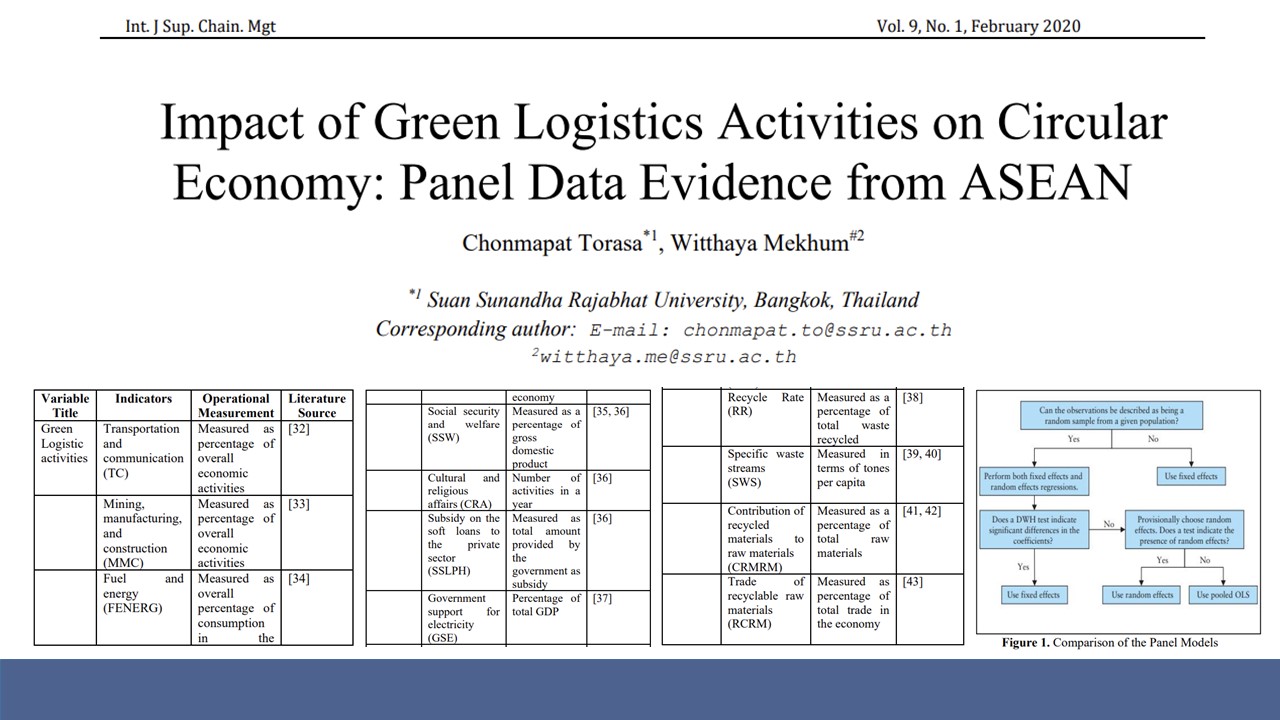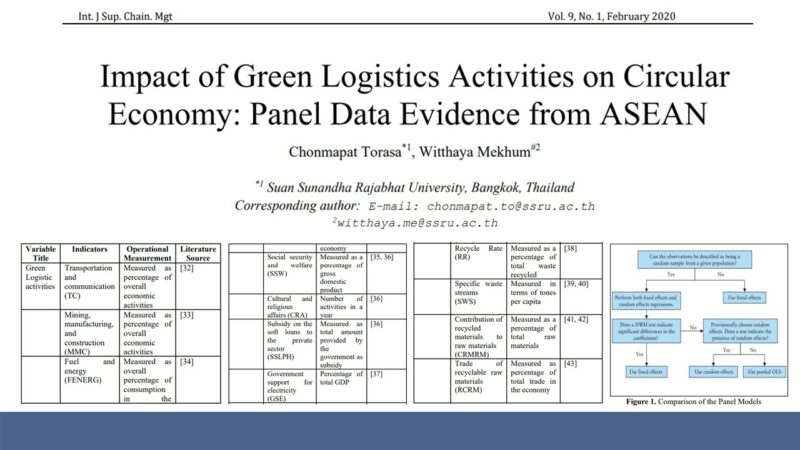Research Article: Impact of green logistics activities on circular economy: Panel data evidence from ASEAN


Green logistics takes into account measures that can reduce the environmental impact of logistical operations. This study aims to investigate the effects of green logistics practices on ASEAN’s circular economy metrics.
In this study, Malaysia, Indonesia, Thailand, and Singapore were four ASEAN members that were examined from 2000 to 2015 with yearly observations. Three-panel models with the names ordinary least square (OLS), fixed effect, and random effect were used to analyse the link between certain elements of green logistics activities and the circular economy.
While examining the association between green logistics activities and chosen circular economy indicators, the study’s findings would be of great use to policymakers and various stakeholders in ASEAN countries.
The study’s key findings indicate that, in all three-panel models, transport and communication (TC) have a considerable impact on the recycling rate of certain economies. However, mining, manufacturing, and building have demonstrated a considerable and favourable impact on ASEAN’s recycling rate. Similar to this, all panel estimators find that the influence of TC on particular waste streams is both considerable and adverse. Additionally, the influence of MMC on the contribution of recycled materials to raw material demands in particular regions is large and favourably influenced. However, the study’s entire sample revealed that TC had a negative impact on the trade of recyclable raw materials.
For full-text please visit: https://core.ac.uk/download/pdf/288291201.pdf

